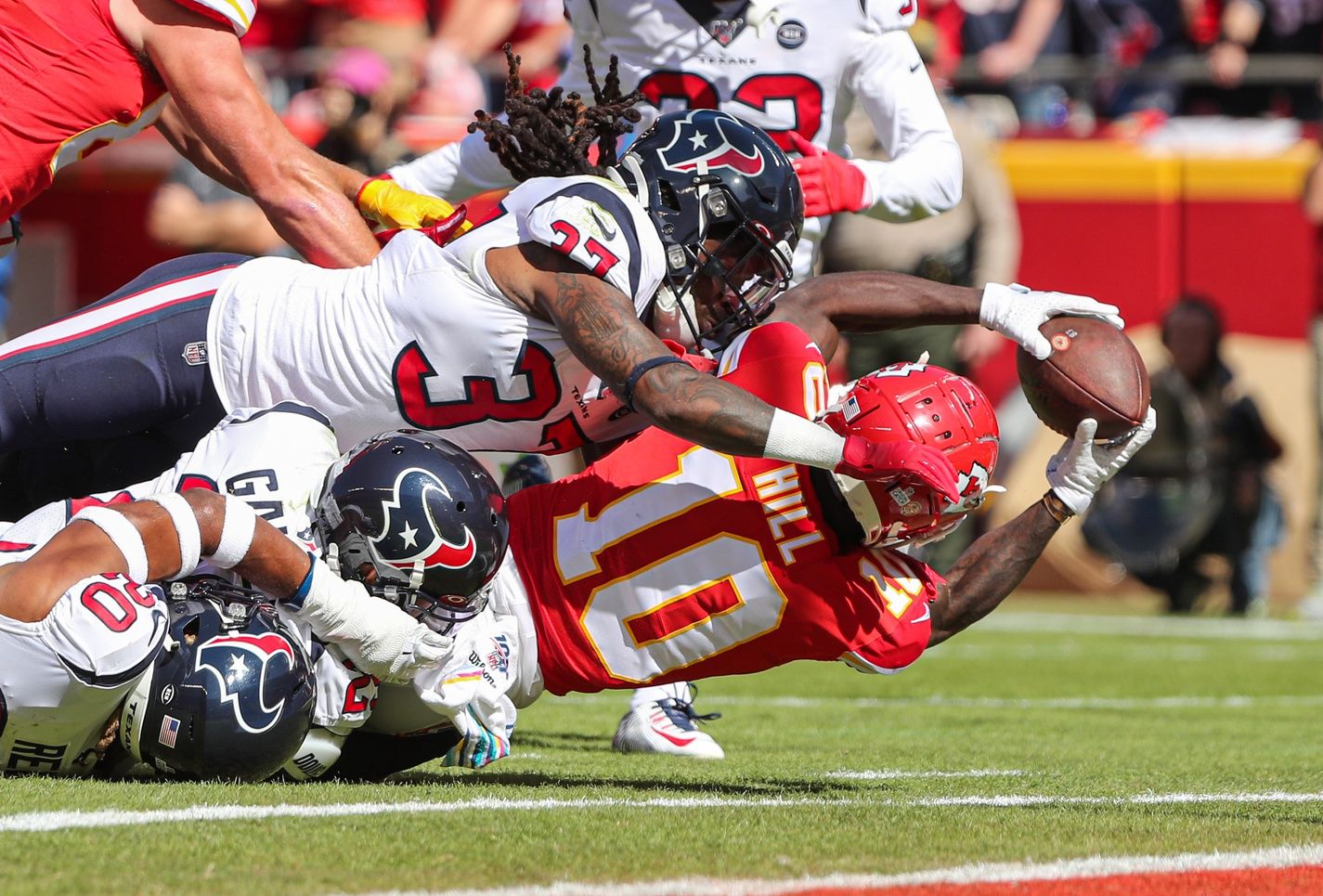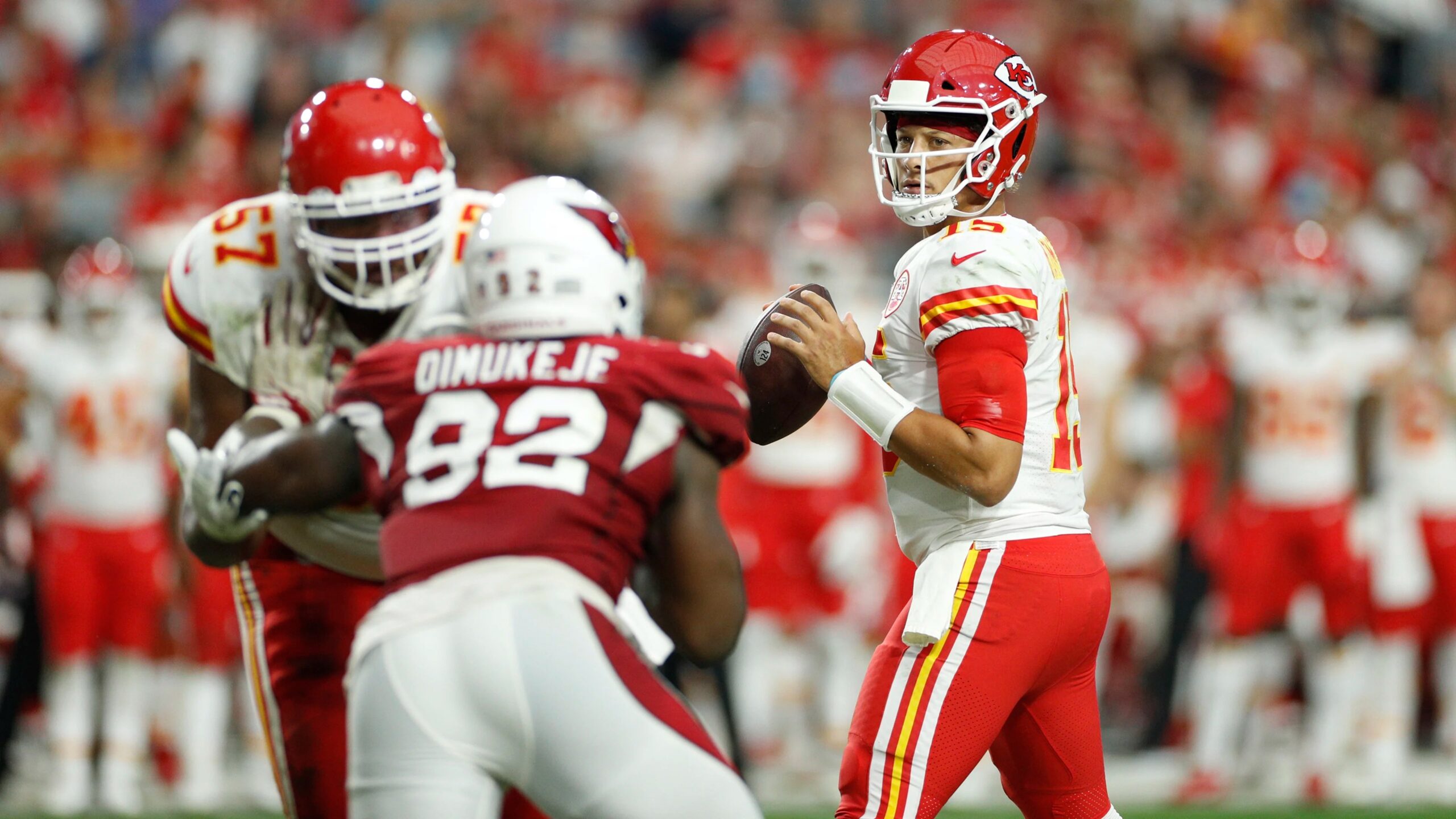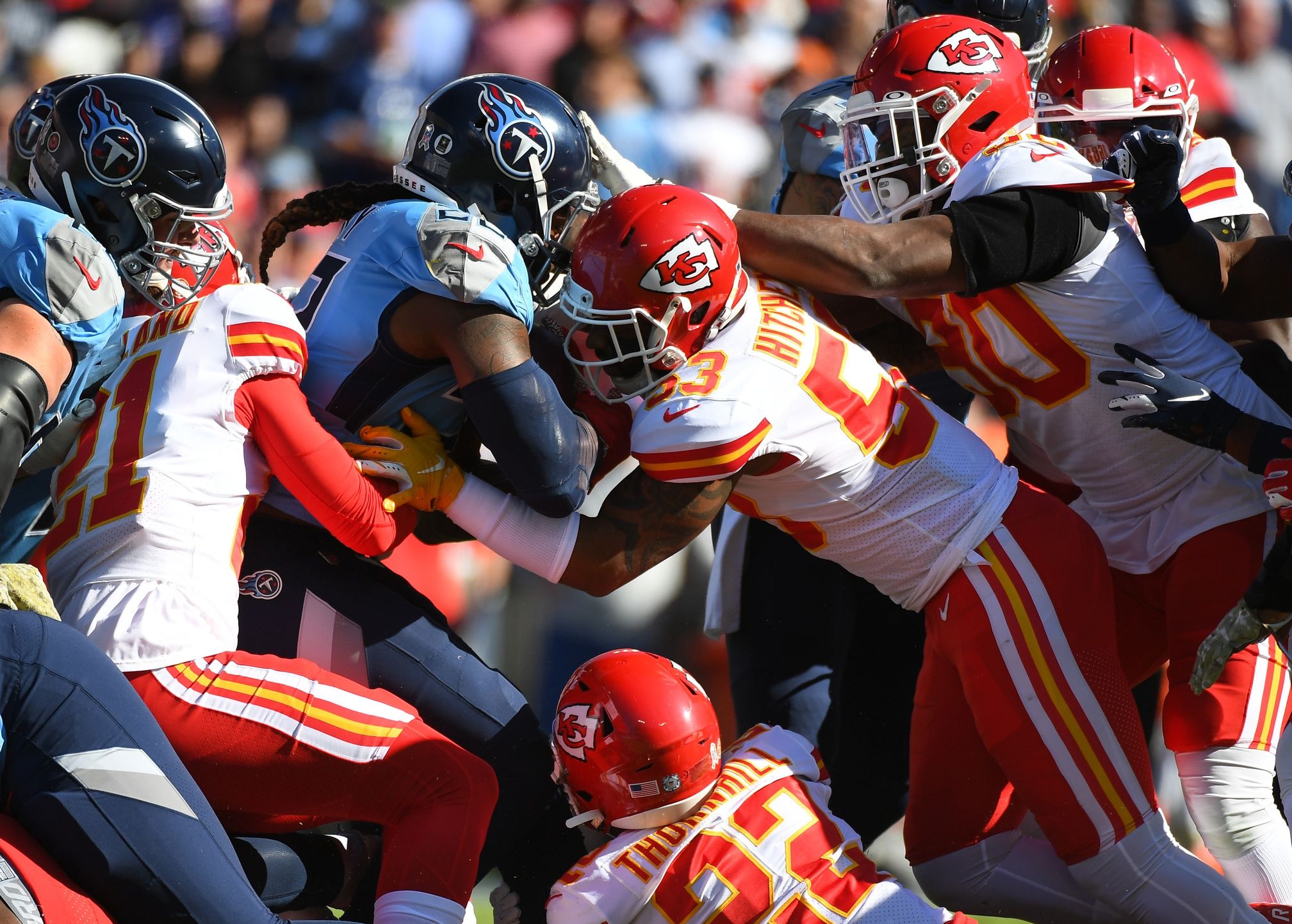The Houston Texans bring one of the league’s lowest-ranked defenses into Arrowhead Stadium to face the Chiefs, but that doesn’t tell the whole story about Sunday’s playoff showdown.
The Texans ranked 28th in the league in allowing 388.3 yards per game, but allowed just 24.1 points per contest, ranking 19th in the league.
But before the Texans lost defensive end J.J. Watt to a torn pectoral injury in Week 8, the team surrendered just 16. 9 points per game while allowing 335.6 yards per game.
With Watt returning to action last week, which Texans defense will show up to face quarterback Patrick Mahomes and the potent Chiefs offense?
Defensive Breakdown
The Texans defense sports a talented front-seven headlined Watt, whose return last week provided the Houston defense with a much-needed boost.
Nose tackle D.J. Reader is a load in the middle, clogging up running lanes and using his power to push the middle of the pocket. Outside linebacker Whitney Mercilus is a very good pass rusher off the edge, winning mostly with speed. He also has a push/pull technique he can use to disengage blockers with ease.
Inside linebackers Benardrick McKinney and Zach Cunningham form a solid one-two punch in the middle. McKinney is adept at stopping the run with his quick mental processing. Cunningham uses speed to play sideline-to-sideline, stringing out outside runs and covering running backs out of the backfield.
The Houston secondary relies heavily on man free, cover 3 and cover 2 schemes. The Texans rebuilt this group throughout the season adding cornerbacks Gareon Conley from Oakland and Vernon Hargreaves from Tampa Bay. Both Conley and Hargreaves are mainly depth pieces, but will see the field in nickel situations and when they are giving 14-year vet Johnathan Joseph a breather. Cornerback Bradley Roby over the last few weeks has been playing his best football of the season. He aggressively jams receivers at the line of scrimmage when he is in man coverage. Free safety Justin Reid possesses great range when playing a centerfielder role.
Beating The Defense
The Chiefs need creativity in their rushing attack against the Texans. Reader, Watt and Benardrick McKinney make running between the tackles a difficult task. Kansas City can use misdirection to create some space inside.
Houston’s linebackers read the guards so if a guard pulls, the inside linebackers will flow with him. This allows the Chiefs to run the linebackers away from the point of attack. They can also use pre-snap motion to move players out of the box, creating a more favorable running situation.
If the Chiefs wants to run at Watt, they should look to the power run game, using pullers to kick Watt out of the hole. The main attack in the rushing game needs to be on the outside with toss sweeps, jet sweeps, tap passes and stretch runs. The Chiefs need to utilize cut blocks to get the ball to the edge quickly.
The Chiefs have to be concerned with protecting Mahomes from an effective Houston pass rush. McKinney is an effective blitzer, usually running through the B-gap to get shots at the quarterback. Kansas City can combat this by getting Mahomes on the move, rolling the pocket right or left to change the Texans’ aiming point. They can also use the screen game to exploit the aggressiveness of the defense.
The passing attack for Kansas City should have a big game. The Houston defense is very soft and beatable when in zone coverage. If Mahomes can see the outside corners bailing before the snap, he will know he’s facing cover 3. That opens up easy completions on slants, skinny posts and quick screens to the outside, letting his playmakers use their speed and shiftiness to rack up big yards after the catch.
Conley is especially vulnerable to the skinny post when he is in cover 3. When the Texans run man coverage, Mahomes can attack with crossers and deep over routes. Roby is overly aggressive at the line of scrimmage and if he is unable to land his jab, he opens himself up to getting torched by speed receivers. The Houston secondary attacks aggressively when receivers break off their route, possibly opening themselves up to getting beat by a double move.
The Chiefs offense can use different formations to create problems for the Texans defense. Houston struggles to defend against bunch and stacked receivers, routinely allowing at least one receiver to run free because the corner cannot fight through traffic to get in position to cover. Bunched receiver sets also allow Kansas City to impede the linebacker’s ability to cover the running back out of the backfield, essentially working as a pick play to spring the running back for a big gain. This was part of the attack the Chiefs used in the regular season, choosing to routinely target Cunningham when he was manned up on the running back.



